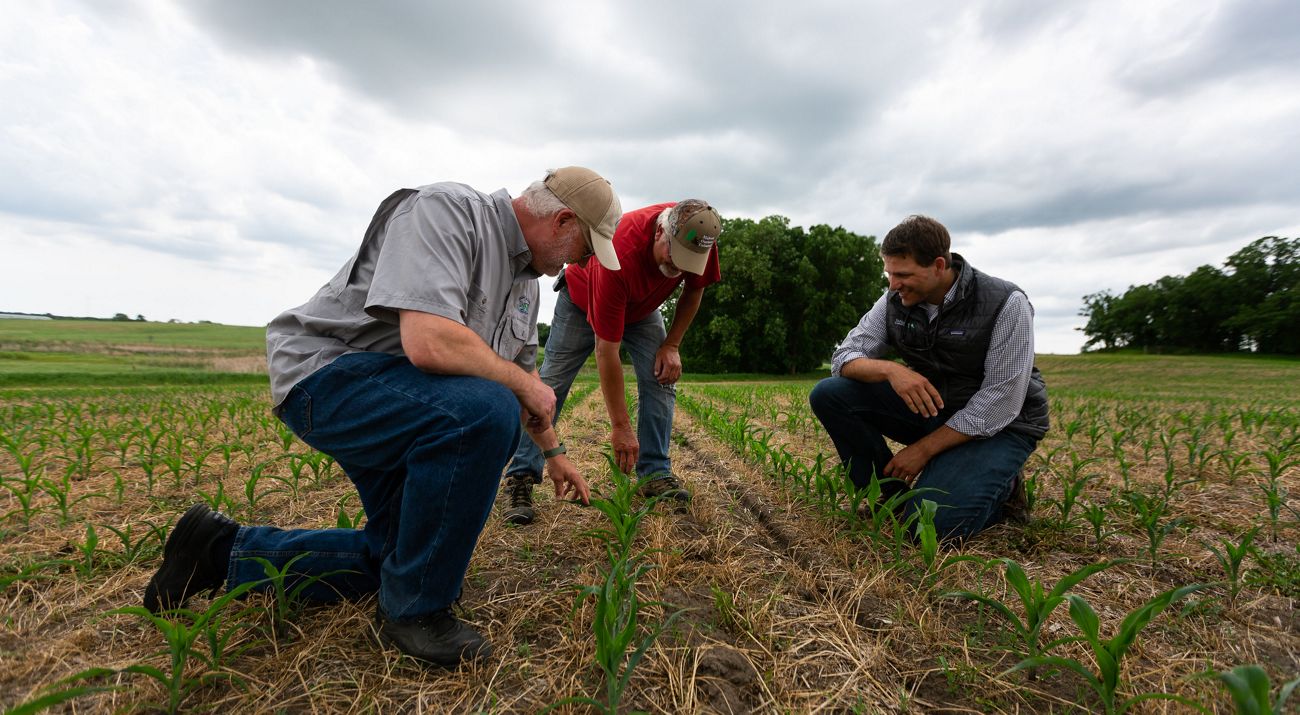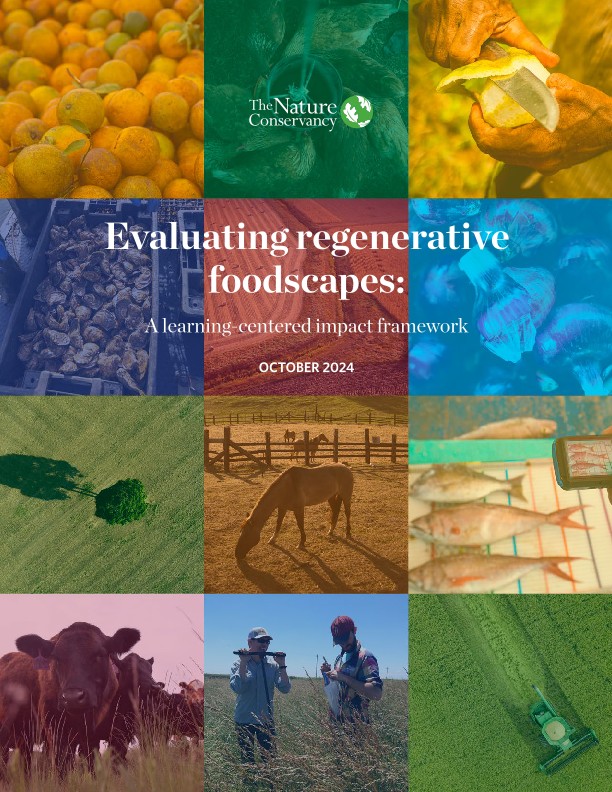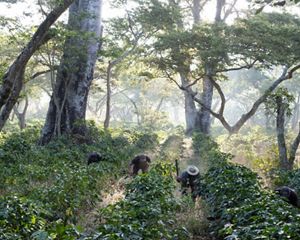A Learning-Centered Framework for Evaluating Regenerative Food Landscapes
A new evaluation framework from TNC gives food system practitioners and partners tools to measure progress toward building regenerative landscapes
Food production is a major driver of climate change and biodiversity loss, accounting for about a third of greenhouse gas emissions, 70% of global water use and 90% of tropical deforestation. Given the diverse production systems worldwide, shifting to more regenerative practices that improve natural capital requires scalable, place-based transformations of systemic barriers at the landscape—or foodscape—level.
The Nature Conservancy’s Regenerative Foodscapes strategy promotes food production methods that benefit both people and nature. Key to the success of these foodscapes is scale—with TNC working to design solutions that are local enough to allow concrete, measurable change, yet broad enough to drive systemic impact. This landscape-level approach provides the best chance of integrating the needs of people and nature, both of which are tied to the food system.
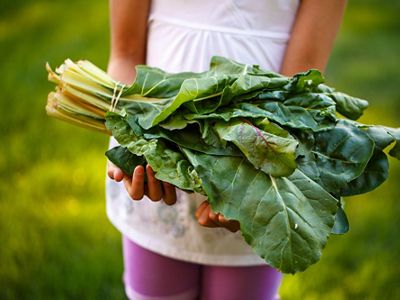
TNC’s vision of transitioning to regenerative foodscapes is ambitious. Achieving this vision requires the ability to be flexible and adapt in real time—constantly measuring and evaluating strategies based on what works and what doesn’t. It also requires demonstrating that new models of food production achieve the intended outcomes to drive the level of ambition and investment required to scale change.
In a new report called Evaluating regenerative foodscapes: A learning-centered impact framework, TNC is introducing a model to measure key indicators of progress, balancing competing outcomes and priorities at a landscape level through an adaptive learning approach. From farmers to food companies to government and non-governmental initiatives, this new approach allows local stakeholders to evaluate and demonstrate how regenerative practices in agri-food systems can drive meaningful change.
Learning from and evaluating conservation in the food system
Using a framework of monitoring, evaluation and learning to drive adaptive management strategies is rooted in decades of work at TNC. TNC has been a proponent and leader in landscape-level conservation since the 1970s, and our decades of learning and experience have culminated in the creation of a new framework to evaluate the success of conservation interventions within foodscapes.
Building on that foundation, this framework suggests key outcome indicators that are based in TNC’s 2030 goals. It also includes several additional agri-food system indicators that allow practitioners to evaluate the productivity of the food system as well as that of the ecosystem in which it is embedded. These metrics allow teams on the ground to focus on collecting high-quality, high-impact data that addresses the health of the entire landscape system.
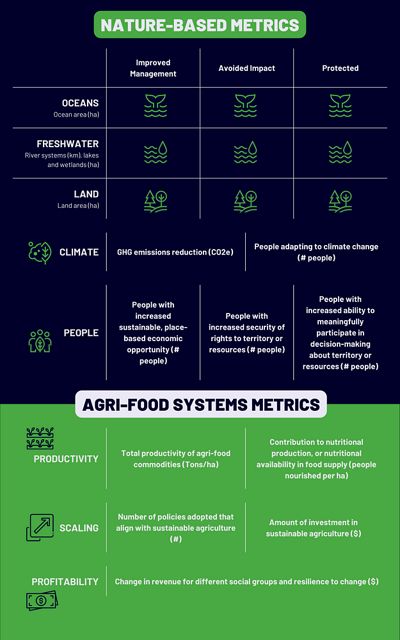
This framework is designed to balance the need to demonstrate change with improving implementation, without overburdening teams on the ground with excessive data collection demands. Beyond the suggested metrics, it offers guidance on developing a monitoring, learning and evaluation plan for landscape-level initiatives, including what to measure, how to measure and how to allocate resources and time to measurement.
Using the impact framework at TNC and beyond
This framework is developed to stress test and support TNC’s theory of change for regenerative foodscapes. But TNC’s foodscapes are far from the only conservation programs that aim to support a regenerative food system within these landscapes. All practitioners and partners who are involved in landscape-level initiatives can turn to this framework to monitor and evaluate the impact of their interventions.
Download
Learn about TNC's innovative framework that explores how regenerative practices in agri-food systems can drive meaningful change.
DOWNLOADJoin Our Webinar
To dive deeper into the development and use cases for this framework, TNC is hosting a webinar on Tuesday, December 17, at 10 a.m. EST.
Global Insights
Check out our latest thinking and real-world solutions to some of the most complex challenges facing people and the planet today.
